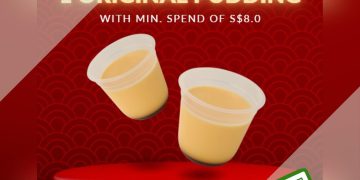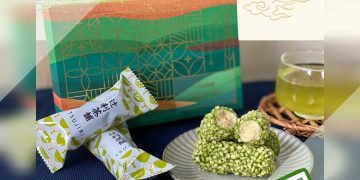Famous hokkien mee stalls tell us what makes good hokkien mee
Due to its place in our pantheon of local dishes, hokkien mee sparks plenty of debate—where to get the best hokkien mee, dry versus wet, you know the drill. In this article, however, we’ll investigate a point of contention that cuts to the very core of the noodle dish. When you strip back all the Michelin accolades and mystique surrounding the dish, what is it exactly that makes a good plate of hokkien mee?
To answer this, we spoke with the hawkers behind three of Singapore’s most famous hokkien mee stalls: Nam Sing Hokkien Fried Mee, Come Daily Fried Hokkien Prawn Mee, and Hokkien Man Hokkien Mee. Whether it’s the stock, frying techniques, or ingredients, these masters of their craft shared with us their secrets for perfecting this beloved dish.
13 Best Hokkien Mee In Singapore Ranked—Nam Sing, Xiao Di, Geylang Lorong 29 And More
Nam Sing Hokkien Fried Mee: Quality requires patience
Nam Sing isn’t just a hugely popular hokkien mee stall—it’s also a cornerstone of hokkien mee history. I say this because Ng Hock Wah, the 76-year-old who’s been running the stall for over 50 years, is the son of hokkien mee’s inventor. Mr Ng is carrying the torch of hokkien mee as it originally was.
More specifically, Mr Ng’s father and uncle created the dish shortly after arriving in Singapore from Xiamen, China, in the 1940s. While initially the dish was little more than stir-fried noodles and bean sprouts, they eventually added prawns and squid to the dish, forming the template for hokkien mee as we know it today.
After learning the dish from his father in the 1960s, Mr Ng opened Nam Sing Hokkien Fried Mee, which can be found today in Old Airport Road Food Centre. When we interviewed him at the stall, Mr Ng told us that his decades’ worth of experience making the dish has taught him that the length of time spent cooking the hokkien mee is pivotal.
“The heat and duration you cook has to be enough,” said Mr Ng. “It cannot be that just because your business is good, you quickly fry and there’s not enough heat to make good hokkien mee.”
“The heat and duration you cook has to be enough. It cannot be that just because your business is good, you quickly fry and there’s not enough heat to make good hokkien mee.”
Mr Ng usually takes about 20-25 minutes to fry a batch of up to 15 plates of hokkien mee. This duration has tested impatient customers, but Mr Ng insisted that it is necessary in order to create the kind of wok hei and flavour the dish is known for.
Mr Ng also emphasised the use of high-quality ingredients. He insists on getting fresh seafood from the wet market daily, and these—prawn heads and shells, sotong, lala, ikan bilis and more—make it into the rich stock that continuously boils from 5am till the stall closes for the day. The amount of ingredients used is vital, too, as Mr Ng uses a one-egg-to-plate ratio in order to create the right egginess for hokkien mee.
But Mr Ng kept circling back to the importance of giving hokkien mee enough heat and time. “If you want quality, you need to wait! Don’t ask me to quickly cook a plate for you—I won’t do that.”
“If you want quality, you need to wait! Don’t ask me to quickly cook a plate for you—I won’t do that.”
Nam Sing Review: Famous Hokkien Mee Hawker That Has Been Around Since 1963
Come Daily Fried Hokkien Prawn Mee: Controlling the fire
Also known as Tian Tian Lai, Come Daily is another renowned hokkien mee stall that has been around for ages—since 1968, to be exact. This Toa Payoh West Market & Food Centre stall has been run by Steven Ng for almost half a century now, with the man himself currently in his sixties.
When asked about the most crucial factor when frying hokkien mee, Steven simply replied, “control of fire lor.”
The lever you see in the picture above is what Steven uses to manage the fire. Like a glassblower shaping glass with precision, Steven makes many micro-adjustments to the fire’s intensity while cooking a large batch of hokkien mee. His son, Jason Ng, explained why this is the case.
“Every batch is never the same,” Jason noted. “When you start cooking, sometimes the noodles are too hard, other times the eggs may not be as fragrant. To keep the taste and texture consistent, you need the experience to adjust the fire accordingly.”
“Sometimes the noodles are too hard, other times the eggs may not be as fragrant. To keep the taste and texture consistent, you need the experience to adjust the fire accordingly.”
Pork lard is also a key component in Steven’s famous hokkien mee. It’s immediately obvious when you get a plate, as each comes topped with generous pillows of pork lard, but Come Daily is also one of the stalls that fries their noodles entirely in lard oil. The result is hokkien mee with a richer and arguably more addictive flavour.
When asked about their seafood stock, both Steven and Jason stated that while they spend hours preparing it, it isn’t anything special. “It’s all in the fire,” Jason reminded us. “My father studied the fire for many years, and that’s how he makes the hokkien mee he does.”
“My father studied the fire for many years, and that’s how he makes the hokkien mee he does.”
Come Daily Fried Hokkien Prawn Mee: Michelin-Approved Noodles Since 1968
Hokkien Man Hokkien Mee: The stock is critical
Having opened in 2019, Hokkien Man is relatively new to the hokkien mee scene. And yet within the span of a few years, it has become one of the most well-known stalls in the country, with a lot of fanfare surrounding the fact that it is run by a former sous chef at the three Michelin-starred Les Amis.
The chef in question is Xavier Neo, 48, a man who in spite of having experienced the glitzy world of fine dining, chose to return to his first love. “I’ve always loved hokkien mee,” said Xavier. “It’s been like that since I was small, when my father brought me to eat.”
While the other two masters we interviewed stressed the importance of the fire, Xavier seemed to pay special attention to the stock. “The most expensive thing about hokkien mee is the stock. Especially if you want to make the wet version, you need a lot of stock—that means more boiling, more costs.”
“The most expensive thing about hokkien mee is the stock. Especially if you want to make the wet version, you need a lot of stock—that means more boiling, more costs.”
The foundational ingredients of Xavier’s stock are fairly standard. And yet its deep orange hue suggests that Xavier is doing something quite different with it.
“I make the prawn stock the same way I make lobster bisque in restaurants. Because of that, I spend five hours frying and boiling a lot of prawn heads, shells, and pork bones” Xavier remarked. “Since I only open for four hours each day, I spend more time preparing the stock than actually operating!”
The result is a creamy seafood stock that is sweet, umami, and layered. And when you enjoy it with the fatty lard present in the noodles, as well as the sweet-spicy sambal concocted by Xavier’s wife, Alice Lai, you get one hell of a plate of hokkien mee.
While Xavier has landed on a successful formula, he believes the dish isn’t even in its final form. “We are not like stalls where their hokkien mee is passed down for many generations—we are a young brand,” Xavier said. “And that’s why I am still learning, day by day, how to make a better plate of hokkien mee.”
“We are a young brand. And that’s why I am still learning, day by day, how to make a better plate of hokkien mee.”
Hokkien Man Hokkien Mee Review: Hokkien Mee By Ex-Les Amis Chef At Toa Payoh
What makes a good plate of hokkien mee
The quality of the stock, the control of fire, and the right duration needed for all of it to come together—based on the three interviews, these are the indispensable factors that create good hokkien mee. Special mention goes to elements such as the lard, type of oil, and amount of eggs, as they contribute to the overall quality of the dish as well.
After speaking to these masters, however, I think what truly separates their hokkien mee from the rest is their sheer dedication to the dish. At the end of the day, there is no magic formula—it all comes down to the unrelenting work these people have put into their craft.
For a story about possibly the first-ever prawn mee stall, read our The Old Stall Hokkien Street Famous Prawn Mee feature. For the story of how chicken rice became our “national dish”, check out our chicken rice history feature.
Nam Sing Hokkien Fried Mee
Address: 51 Old Airport Road, #01-32, Singapore 390051
Opening hours: 10am to 6pm (check their Instagram for each month’s opening days)
Tel: 6440 5340
Website
Nam Sing Hokkien Fried Mee is not a halal-certified eatery.
Come Daily Fried Hokkien Prawn Mee
Address: 51 Old Airport Road, #01-32, Singapore 390051
Opening hours: Wed-Sun 8:30am to 2pm
Tel: 9671 7071
Website
Come Daily Fried Hokkien Prawn Mee is not a halal-certified eatery.
Hokkien Man Hokkien Mee
Address: 51 Old Airport Road, #01-32, Singapore 390051
Opening hours: Thurs-Tue 11am to 3pm
Tel: 8798 1525
Website
Hokkien Man Hokkien Mee is not a halal-certified eatery.
Is This The First Ever Prawn Mee Stall? The Story Of The Old Stall Hokkien Street Famous Prawn Mee
Photos taken by Melvin Mak, whom this article is dedicated to.
This was an independent feature by Eatbook.sg.
The post What Makes Good Hokkien Mee, According To Singapore’s Most Famous Stalls appeared first on EatBook.sg – Local Singapore Food Guide And Review Site.






